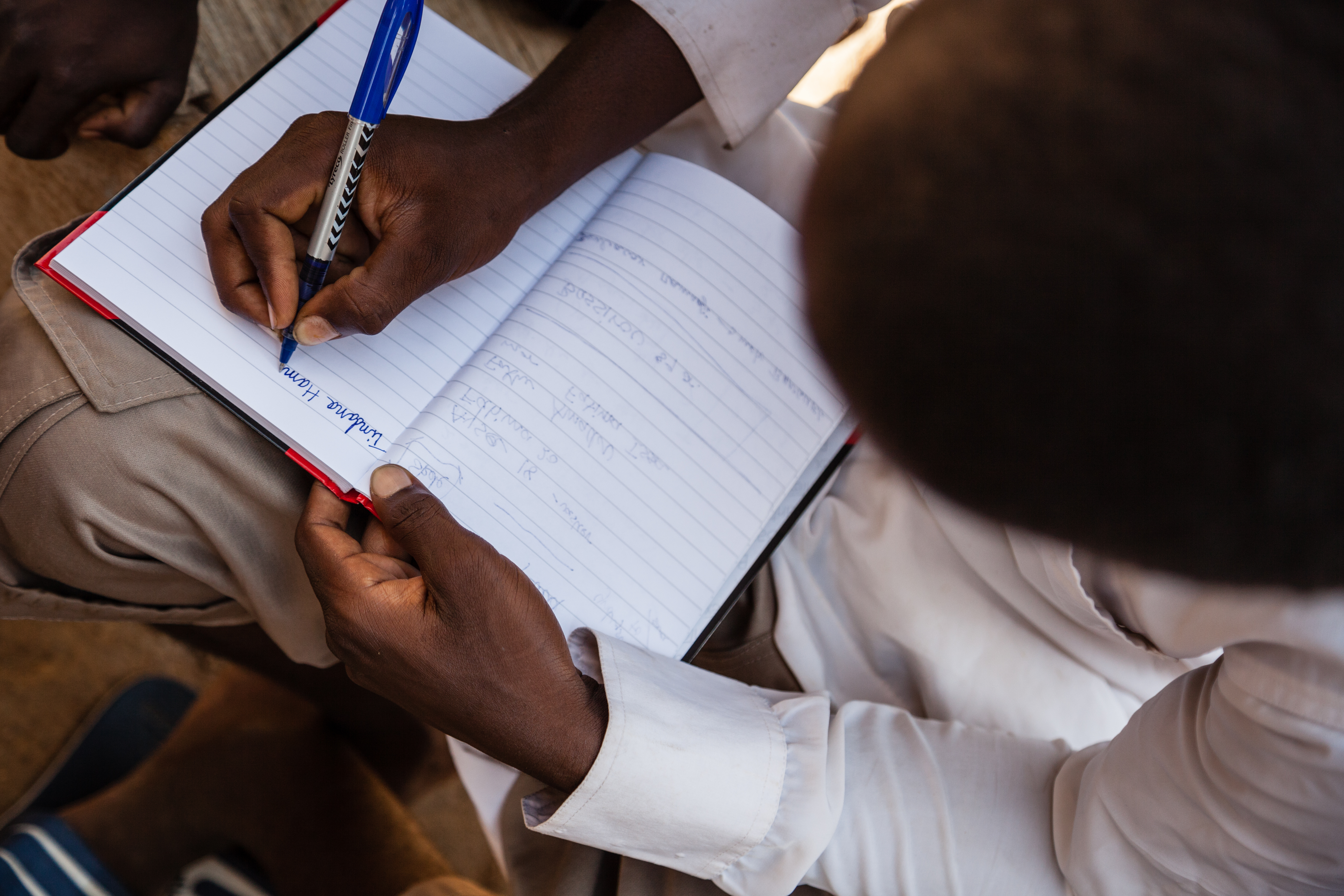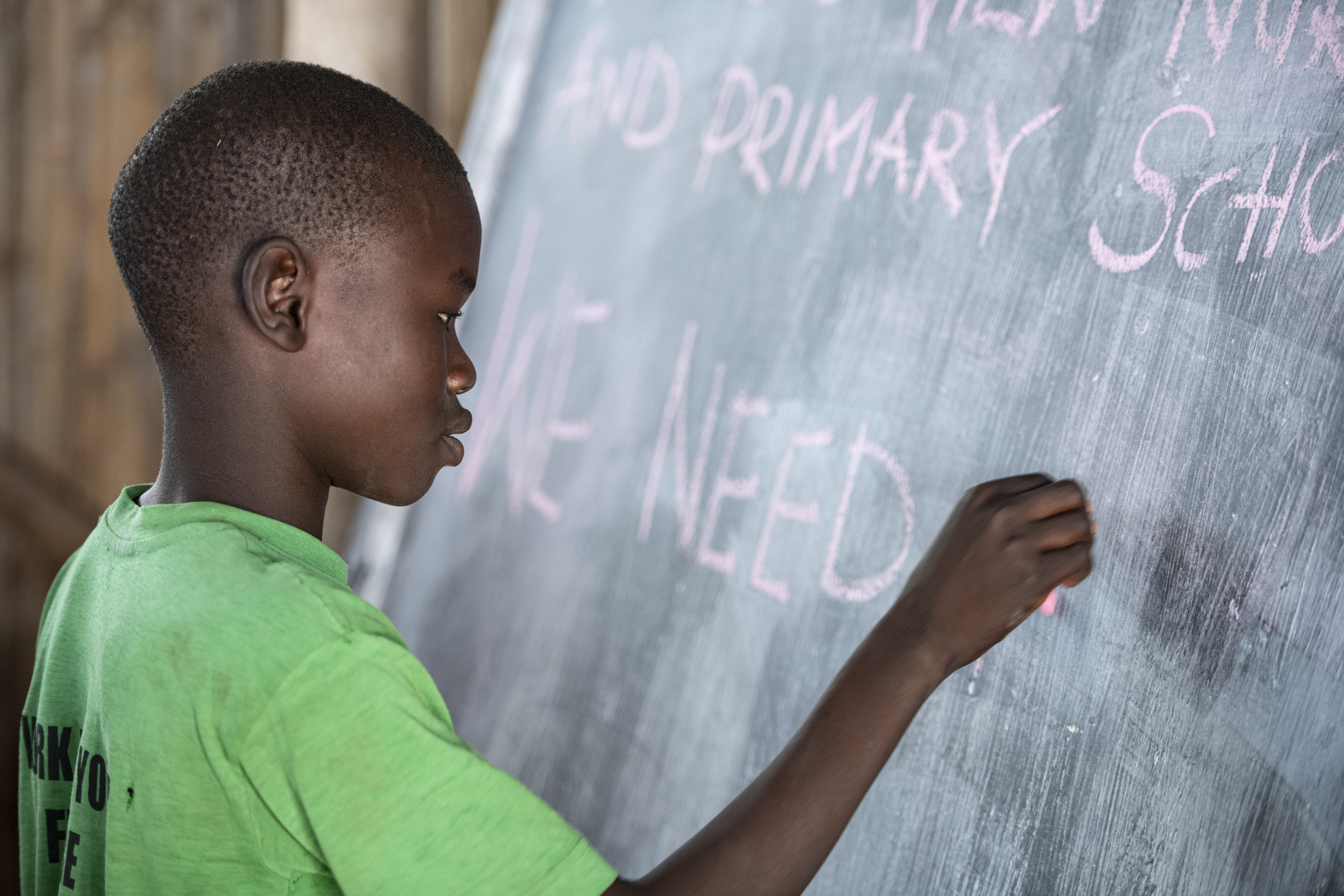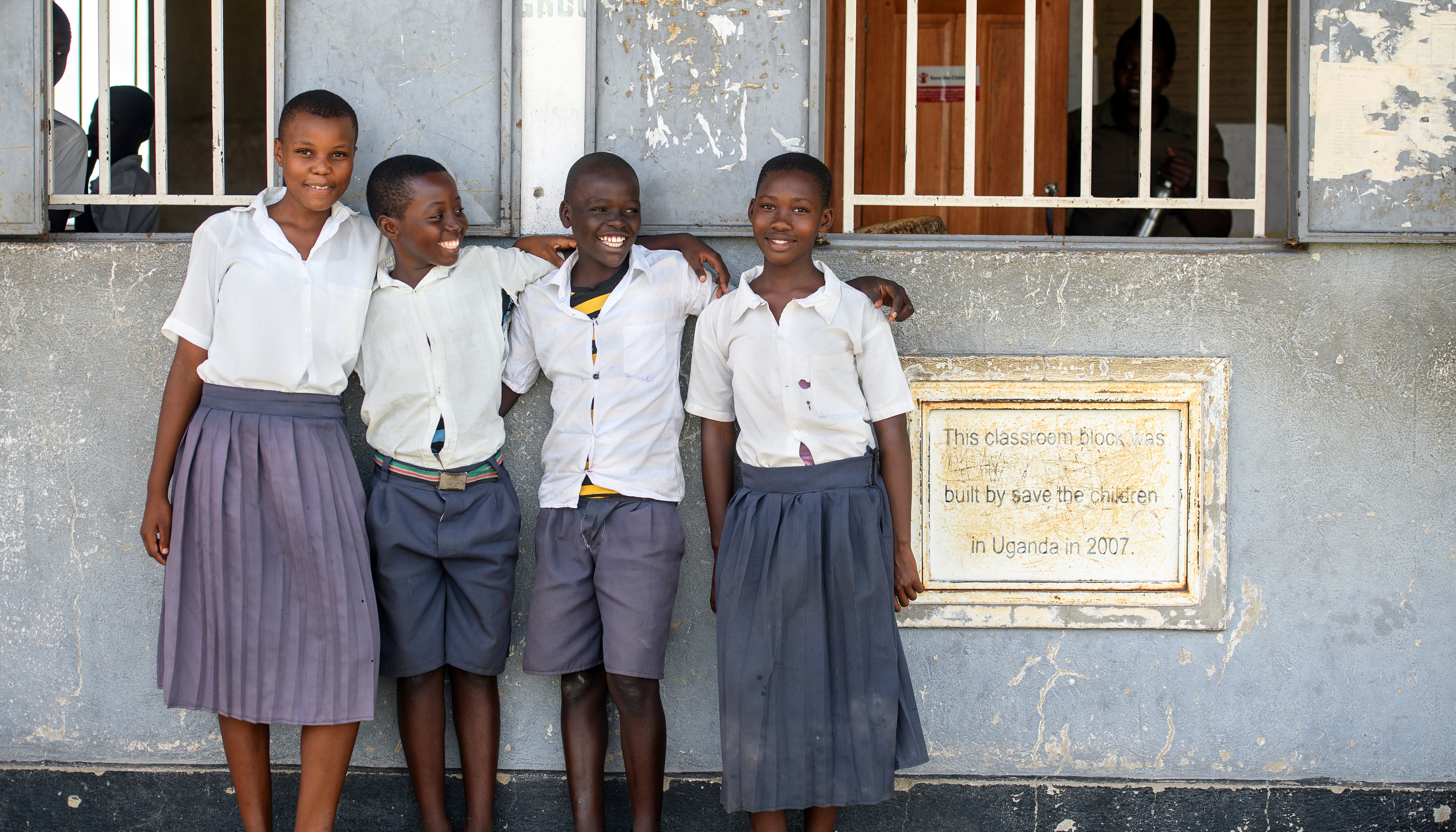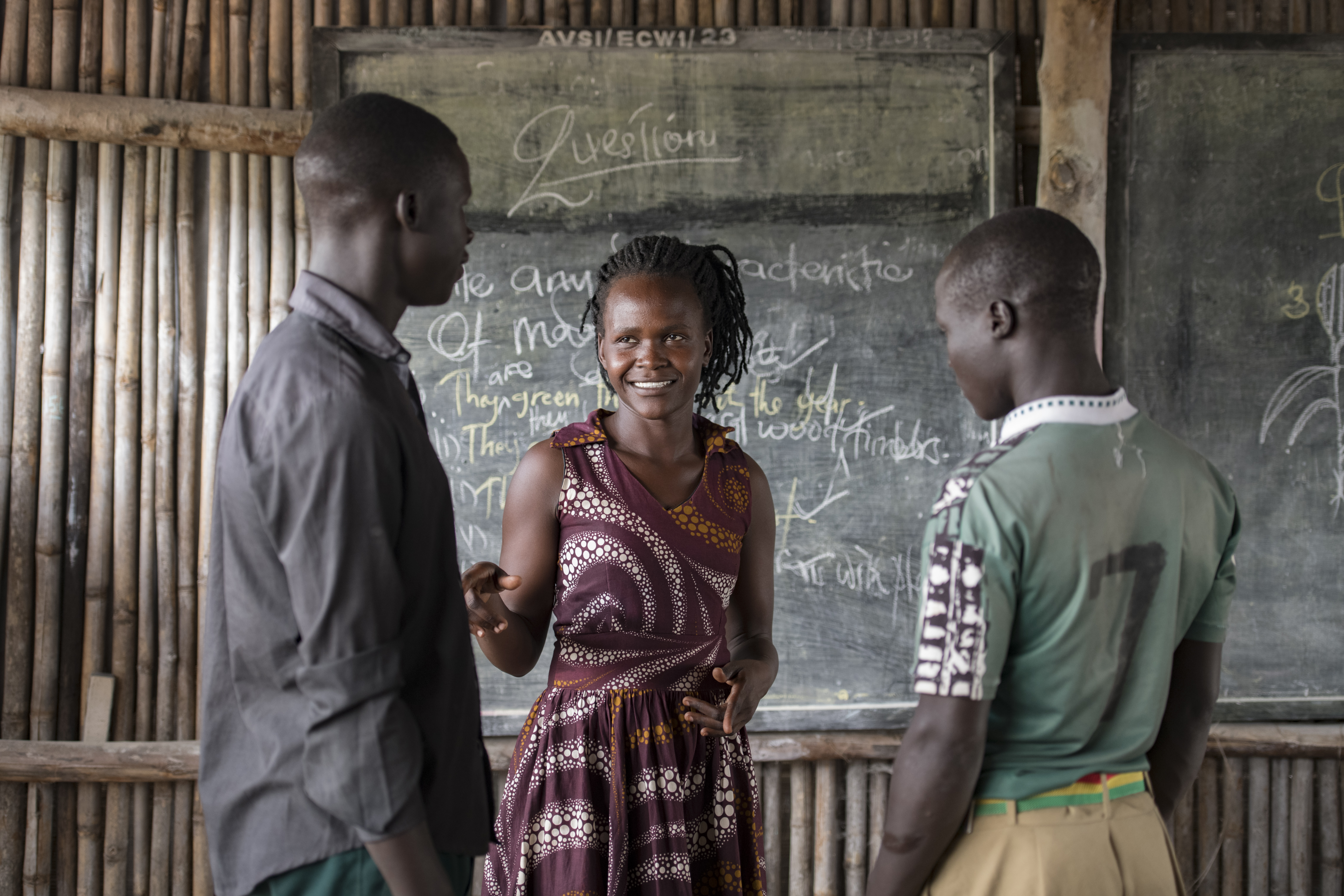The first 10 national CSOs under OC2 to undergo the Year Zero process
After a competitive call for applications in June 2020, 461 concept notes from a variety of organizations were submitted from 53 countries. The ten organizations were chosen after a thorough assessment process conducted by a selection panel of global independent experts.
All ten organizations have now initiated the Year Zero process. Year Zero is part of the EOL learning agenda and functions as a developmental pathway for the candidates. Over a duration of six months, the candidates are provided with support to build organizational capacity and develop a sound theory of change and learning plan. The six-month period provides Year Zero candidates with a strong foundation, equipping them to develop their final full project proposals. Additionally, the period gives the candidates a chance to test their approaches and initiate relationship-building with key actors.
The ten CSOs will work to strengthen transparency and accountability in each of their national education sectors as well as ensure civil society’s influence and voice in education policies and processes.
EOL very much looks forward to supporting the organizations in the process of developing their full proposals, and warmly congratulate all ten organizations.
Explore more about the 10 CSOs below:
Association des Personnes Rénovatrices des Technologies Traditionnelles (APRETECTRA) is an organization based in Benin. APRETECTRA has, since its creation in 1982, been working for the development of communities, particularly focusing on women, young people, and vulnerable people. The organization takes a participatory approach to working with transparency and accountability in the education sector. In Year Zero, the organization will develop a project aiming to mobilize communities and influence decision-makers to facilitate access to training and employment opportunities in high schools for young high-school girls from disadvantaged urban and rural communities.
Visit the organization’s facebook page here.
MSIS – Tatao is an organization based in Madagascar. The organization specializes in promoting good governance, transparency, and accountability at the local and national level. For the project, MSIS-Tatao has partnered with four other organizations in Madagascar. These include Ravintsara, an NGO specializing in local governance and anti-corruption, DRV, a platform specializing in promotion of gender equality, PACA, specializing in literacy, as well as MonEPT specializing in child integration. The project to be developed during Year Zero aims at strengthening the engagement of local CSOs in monitoring and hence improve transparency and accountability regarding the use of resources for basic education services. Through the project, the organization especially wishes to address issues limiting marginalized children’s access to basic education.
Visit MSIS-Tatao’s facebook page here.
ECODEV is an association based in Mauritania. The organization works to implement local development projects, promote access to essential services, as well as advocate to influence sectoral policies. It aims to improve living conditions of the population thus contributing to the implementation of national and sectoral policies in line with the SDGs. For the project to be developed during Year Zero, ECODEV has partnered with AMM, specializing in basic education, and FERAPERIM, which aims to bring together and create a voice for parents of pupils. The project aims at ensuring greater involvement of civil society in monitoring of policies and engagement in policy dialogue. The organization wishes to make the formulation of education policy more focused on student learning, as well as more transparent and accountable.
Visit ECODEV’s twitter account or facebook profile.
Fundación Privada de Fieles CENTRO DE MULTISERVICIOS EDUCATIVOS – CEMSE is an NGO based in Bolivia. The organization works with educational communities of the public system for the improvement of educational quality. For the project, in which CEMSE acts as the lead organization, CEMSE has partnered with ACLO which is a Bolivian NGO specializing in supporting the productive socio-community educational model in regular education. ACLO specifically has experience working in rural municipalities of Bolivia. The project to be developed during Year Zero aims to strengthen the multilevel advocacy of organizations and actors of educational communities. The organization wishes to advance inclusive and equitable quality public education by addressing issues jeopardizing the educational progress of regular education in Bolivia.
Visit CEMSE’s website or facebook page.
Parent Teacher Association Mongolia is an NGO based in Mongolia. The organization is dedicated to improving the quality of education for children in Mongolia by building effective multi-stakeholder partnerships. For the project to be developed during Year Zero, the organization has partnered with the organization, Upgrading People Consulting and Training, who is experienced in providing consultancy and training on organizational development and social accountability in educational institutions. The project aims at strengthening transparency and accountability in the education sector, as well as preventing corruption in Mongolian schools. The organization wishes to build the capacity of the school community, and to create a voice for parents, teachers, and students enabling them to influence education policies.
Visit Parent Teacher Association Mongolia’s website or facebook page.
Institute of Social and Policy Sciences (I-SAPS) is a Policy Research and Advocacy institute working across Pakistan. The organization works to create an effective interface between state, market, civil society, and rights holders for inclusive, equitable and sustainable development. For the project, I-SAPS will act as the lead organization in a partnership with the organization Consumer Rights Commission of Pakistan. Both organizations have experience in sectoral planning and financing as well as in procedural policy engagement for institutionalizing contextualized policy solutions to improve education governance. The project to be developed during Year Zero aims to address the limited participation of civil society in education governance by strengthening civil society’s role in promoting a stronger, more inclusive, and accountable education system. It especially focuses on capacity challenges and building of civil society and hence aims at enabling civil society to influence education policies.
Visit I-SAPS’s website or facebook page.
Center for Youth Advocacy and Networking (CYAN) is a youth-led NGO working in the Philippines. The organization works to build platforms for young people’s empowerment and meaningful participation in societal change. It is rooted in the youth movement and student organizations in the Philippines and has experience with capacity building of youth-organizations. For the project, CYAN will partner with the organization, Government Watch Philippines, who works for social accountability and citizen monitoring of government institutions. The project to be developed during Year Zero aims at improving transparency, accountability, and civil society participation at various levels of education governance. It especially focuses on enabling youth to monitor government education policies and service-delivery in order to address the education needs in the post-pandemic context.
Visit CYAN’s website or facebook page.
Microfinance and Community Development Institute (MACDI) is a CSO working in Vietnam. It works with community development and aims to increase social inclusion for people with disabilities. The organization has experience with promoting inclusive education for children with disabilities. Its aim is to improve school facilities for disabled children, and to advocate for policies inclusive of people with disabilities. MACDI has experience with providing assistance to policy making, and specializes in inclusive education, transparency and accountability. The project to be developed during Year Zero aims at creating powerful mechanisms and capacity building for CSOs to enable them to monitor the implementation of inclusive education policies in Vietnam. It wishes to address inefficient implementation of national education policies and hence ensure successful implementation.
Visit the organization’s website or facebook page.
Helping Our People Excel (HOPE) is an organization working in Liberia. HOPE has many years’ experience with partnership development and advocacy. The organization works in the areas of education, leadership development, sexual reproductive health and rights, as well as economic development for women and children. For the project, HOPE has partnered with Carefound-Liberia and Paramount Young Women Initiative. Both organizations are women-led and work to advance the rights of adolescent girls and women. The project to be developed during Year Zero aims at strengthening sector engagement and promote citizen’s participation in advocating for increased national education budgets. Specifically, the project aims at addressing barriers for girls to access education by ensuring effective implementation of the national policy of girls’ education.
Visit HOPE’s website or facebook page.
Afro Leadership is a CSO established in 2010 and based in Cameroun. The organization works to transform governance, and to increase access to information as well as transparency of government processes. It aims to make decision-makers accountable, to increase transparency and to engage citizens in policy-processes. The organization has experience with citizen participation, and has various partnerships with actors working with global open data. The project to be developed during Year Zero aims at improving the quality of national education services by strengthening CSOs and ensuring their participation in governance of public schools at the local level. The goal is to strengthen transparency and accountability in the education sector by improving access to education information and developing open data on education policies.
Visit the organization’s website here.



